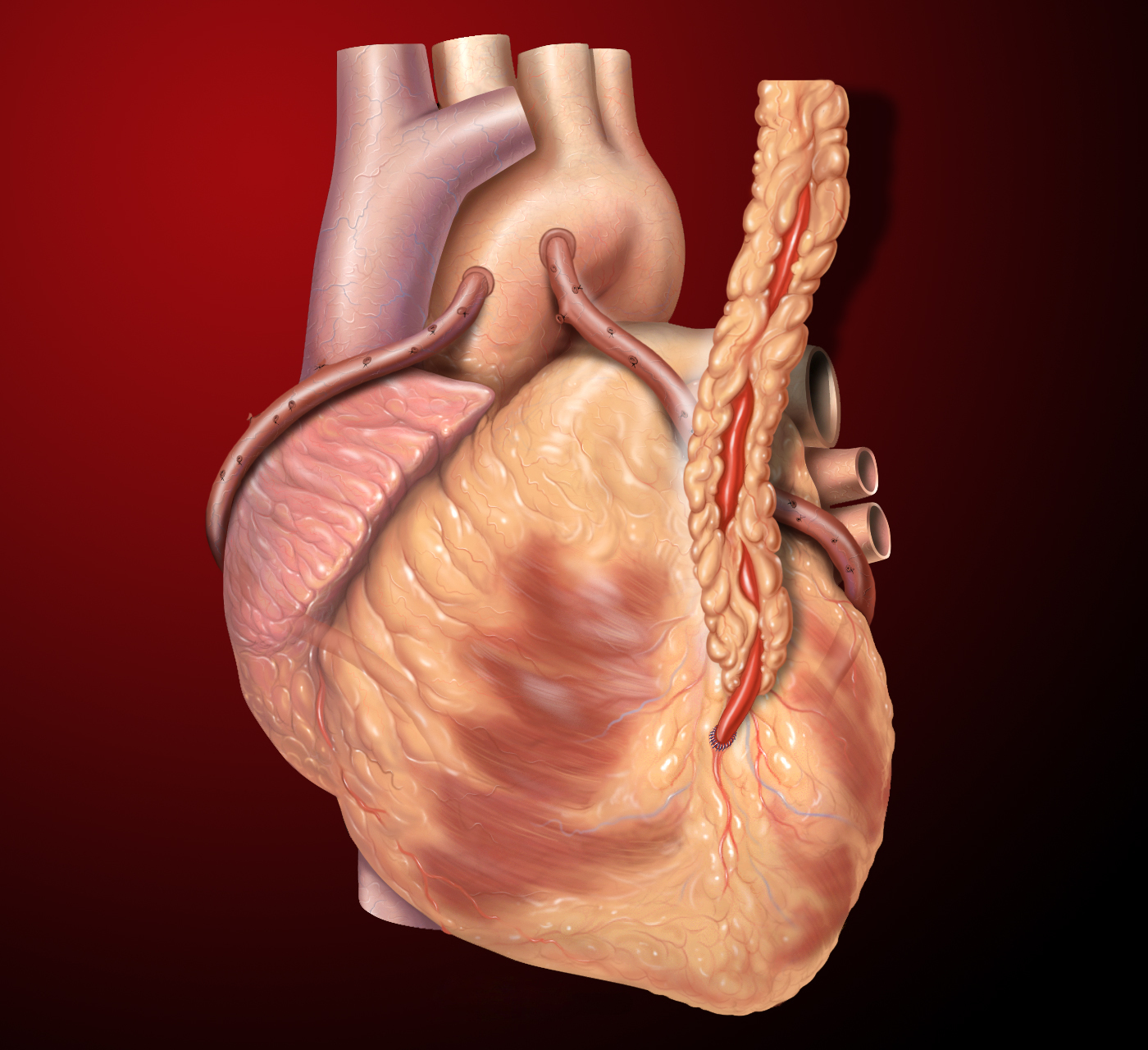
What is coronary artery disease?
Coronary artery disease is a narrowing or blockage of the coronary arteries.
The narrowing of the coronary arteries is caused by atherosclerosis, where abnormal fatty material coats the inside of the artery.
The diseased arteries may not deliver enough oxygen to your heart. The pain associated with this is called angina.
A coronary artery can become blocked, causing part of the heart muscle to die.
What are the benefits of surgery?
You should get less pain and have a better quality of life. Surgery may also improve your breathing and how well your heart works.
Sometimes surgery can reduce the risk of you having a heart attack.
Are there any alternatives to surgery?
For some people it may be possible to have a percutaneous coronary intervention (PCI) to widen or unblock an artery using a small inflatable balloon.
A stent (metal mesh tube) is usually used to hold the artery open.
Medication can be used to relieve the symptoms of coronary artery disease and to help prevent the disease from getting worse.
What will happen if I decide not to have the operation or the operation is delayed?
If you decide not to have an operation, your angina may stay stable and controlled for many years. You will need to continue with medication. Without an operation, your angina may get worse. If you have recently had a heart attack or unstable angina (acute coronary syndrome) there may be a higher risk of you having another heart attack if you do not have an operation.
If you are waiting for this operation and your angina gets worse, call the Emergency services.
Contact your healthcare team if chest pain or breathlessness:
- happens more often or lasts for longer
- happens when you are resting or at night
- does not improve with medication
If you are considered high risk, it is unlikely that the operation will be delayed.
What does the operation involve?
The operation is performed under a general anaesthetic and usually takes about 3 hours.
Your surgeon will make a cut down the front of your chest, through your breastbone (sternum). You will be connected to a heart-lung machine, which allows your heart to be still while the bypasses are performed.
For each coronary artery that needs a bypass, your surgeon will take a length of blood vessel from another area of your body, usually a vein from your leg or an artery from your arm or chest. They will use the blood vessel to bypass the narrowing or blockage and so restore a good blood supply to your heart.

How can I prepare myself for the operation?
Bad teeth and gums can cause infection of the lining of your heart. Keep your teeth and gums as healthy as possible, and go to your dentist regularly for a check-up.
If you smoke, stopping smoking now may reduce your risk of developing complications and will improve your long-term health.
Try to maintain a healthy weight. You have a higher risk of developing complications if you are overweight.
Regular exercise should help to prepare you for the operation, help you to recover and improve your long-term health. Before you start exercising, ask the healthcare team or your GP for advice.
Speak to the healthcare team about any vaccinations you might need to reduce your risk of serious illness while you recover. When you come into hospital, practise hand washing and wear a face covering when asked.
What complications can happen?
General complications of any operation
- bleeding
- allergic reaction to the equipment, materials or medication
- acute kidney injury
- venous thromboembolism (VTE)
- chest infection
Specific complications of this operation
- stroke
- infection of the surgical site (wound)
- heart attack
- death
- recurrence of your symptoms
Consequences of this procedure
- pain
- unsightly scarring of your skin
How soon will I recover?
After the operation you will be transferred to the cardiac intensive care unit or high dependency unit for a few days, so the healthcare team can monitor you more closely. You will then go to the ward.
You should be able to go home after 5 to 7 days.
The healthcare team will tell you when you can return to normal activities.
Regular exercise should help you to return to normal activities as soon as possible. Before you start exercising, ask the healthcare team or your GP for advice.
Most people make a good recovery, with relief from angina.
Most people have continued relief but symptoms can sometimes come back.


